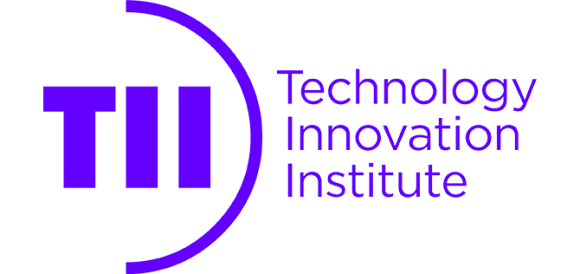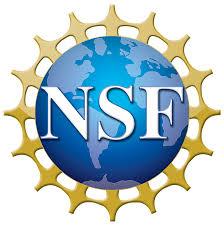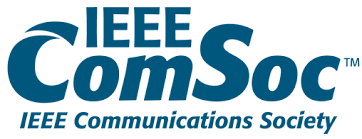7th International Workshop on
DroneCom: Drone-Assisted Wireless Communications for 5G and Beyond
Organized in conjunction with
IEEE International Conference on Computer Communications, May 20, 2024
08:30 – 18:00 ● Room: Regency B
CALL FOR PAPERS COMMITTEE PROGRAM
Nowadays, mobile communication technology is leading towards the deployment of Fifth generation (5G) networks, wherein Internet of Things (IoT) is likely to play a central role. It is expected that 5G deployments will be characterized by increased network density, enhanced capacity, near ubiquitous connectivity, and ultra-reliable and low latency communications, in order to deliver flawless quality of service (QoS) that is essential for IoT to be successful. To deal with these trends and support the growing appetite of data services, mobile backhaul becomes an indispensable solution towards realizing a 5G network. Moreover, the emergence of dense heterogeneous networks (HetNets), which are constantly promoted as a prime candidate for 5G evolution, has further provisioned the need of mobile backhaul solutions while making it a critical component of RAN. However, wireless backhauling relies on Small Cell Base Stations (SBSs); wherein the installation of extra-terrestrial infrastructures for SBSs may not be an acceptable solution due to the high cost of deployment. Thus, a huge paradigm shift in backhaul network design is highly desirable for 5G networks in order to dynamically manage the increasing traffic demands of SBSs and cater new applications with ease. In this direction, the integration of both terrestrial and aerial network components can be considered a promising solution. Therefore, drone-mounted infrastructure are envisioned to supplement the terrestrial infrastructure while improving flexibility and reliability of backhaul operations. However, in order to reap the full potential of drones in 5G backhaul, it must cope with the inherent challenges like lack of fixed backhaul links, multi-drone coordination, collision and crash avoidance, sparsely and intermittently connected network topologies, and moreover limited communication, computation, and endurance capabilities. Therefore, the proposed workshop aims to bring together researchers and practitioners to share their ideas, latest findings, and state-of-the-art results on fostering the promising benefits of drones in 5G wireless networks.
General Co-Chairs:
Sahil Garg, Ultra Communications, Montreal, Canada
Dusit Niyato, Nanyang Technological University, Singapore
Fabrizio Granelli, University of Trento, Italy
Harpreet S. Dhillon, Virginia Tech, Blacksburg, VA, USA
Technical Program Co-Chairs:
Kuljeet Kaur, École de technologie supérieure, Montreal, Canada
Satinder Singh, Ultra Communications, Montreal, Canada
Publicity Co-Chairs:
Georges Kaddoum, École de technologie supérieure, Montreal, Canada
08:30 – 09:00
Opening Session: Message from Chairs
09:00 – 10:00
Session 1: DroneCom Technical Session I
- Optimizing Mobile Robot Localization: Drones-Enhanced Sensor Fusion with Innovative Wireless Communication, Inam Ullah (Gachon University, South Korea); Deepak Adhikari (University of Electronic Science and Technology of China, China); Habib Khan (Sejong University, South Korea); Shabir Ahmad (Gachon University, South Korea); Christian Esposito (University of Salerno, Italy); Chang Choi (Gachon University, South Korea)
- An Unsupervised Graph Neural Network Approach to Deceive UAV Network Reconnaissance Attack, Adrien H. O. Njanko and Danda B. Rawat (Howard University, USA); Charles A Kamhoua (DEVCOM Army Research Laboratory & Network Science Division, USA); Ahmed H. Anwar Hemida (DEVCOM Army Research Laboratory, USA)
- Designing Secure Big Data Analytics Mechanism Using Authentication for Drones-Assisted Military Applications, Sourav Saha and Ashok Kumar Das (International Institute of Information Technology, Hyderabad, India); Saksham Mittal (Graphic Era Hill University Dehradun Uttarakhand, India); Mohammad Wazid (Graphic Era Deemed to be University, India)
10:00 – 10:30
Break
10:30 – 11:30
Session 2: DroneCom Technical Session II
- Rate-Oriented Distributed Spectrum Sharing in UAV-Assisted HetNet: A Two-level Stackelberg Game Approach, Qin Wang, Jiaying Qian and Xinyang Xia (Nanjing University of Posts and Telecommunications, China); Haotong Cao (The Hong Kong Polytechnic University, Hong Kong); Hai-tao Zhao (Nanjing University of Posts and Telecommunications, China); Hui Zhang (Nanjing University of Posts and Telecommunications, Nanjing, China); Hongbo Zhu (Nanjing University of Posts and Telecommunications, China)
- Cramér-Rao Bound for Drone-Assisted MIMO-OFDM IoT Systems Based on PARATUCK Tensor Model, Jianhe Du, Yuan Cheng and Shufeng Li (Communication University of China, China); Xingwang Li (Henan Polytechnic University, China); Thippa Reddy Gadekallu (Vellore Institute of Technology, India)
- Enhancing Mobile Network Performance through ORAN-Integrated UAV-based Mobility Management, Pedro Luiz Magalhaes Cumino (Universidade de Aveiro & Instituto de Telecomunicações, Portugal); Jorge Baranda (Centre Tecnològic de Telecomunicacions de Catalunya (CTTC/CERCA), Spain); Miguel Luis (Instituto Superior Técnico & Instituto de Telecomunicacoes, Portugal); Denis Lima Rosário (Federal University of Para, Brazil); Eduardo Cerqueira (Federal University of Para & UCLA & UFPA & UCLA, Brazil); Josep Mangues-Bafalluy (Centre Tecnològic de Telecomunicacions de Catalunya (CTTC), Spain); Susana Sargento (Instituto de Telecomunicações, Universidade de Aveiro, Portugal)
11:30 – 12:30
Session 3: DroneCom Technical Session III
- Performance Analysis for STAR-RIS-assisted-UAV-empowered Networks under Nakagami-m Fading, Yuxi Wang (Jiangsu Second Normal Universit, China); Yaxuan Liu (Nanjing University of Posts and Telecommunications, China); Yiyang Ni, Jie Peng, Demin Kong and Yueze Lian (Jiangsu Second Normal University, China)
- Joint UAV Trajectory and Beamforming Design for RIS-aided Integrated Sensing and Communication System, Chen Dai, Tianyu Wu, Guozi Sun, Yiping Zuo, Zhengxin Guo and Fu Xiao (Nanjing University of Posts and Telecommunications, China)
- STAR-RIS based Resource Scheduling and Mode Selection for Drone assisted 5G communications, Shivam Chaudhary (Bennett University, India); Anushka Nehra (Thapar Institute of Engineering and Technology Patiala Punjab India, India); Ishan Budhiraja (Bennett University, Greater Noida, India); Rajat Chaudhary and Abhay Bansal (Bennett University, India)
12:30 – 14:00
Lunch
14:00 – 15:00
Session 4: DroneCom Technical Session IV
- Cloud-Based Image Segmentation Approach for Internet of Drones (IoD), Brij B. Gupta (Asia University, Taiwan); Akshat Gaurav (Ronin Institute, USA); John Chui Kwok Tai (Hong Kong Metropolitan University (HKMU), Hong Kong); Varsha Arya (Insights2Techinfo, Taiwan); Jinsong Wu (Universidad de Chile, Chile)
- CPP-OTPO: A Cognitive Multi-UAV System for Adaptive Path and Trajectory Optimization, Gunasekaran Raja (Anna University, India); Selvam Essaky (Anna University, MIT Campus & NGNLab, India); Surya Raj M, Jawaharlal Nehru N and Christ Joe (Anna University MIT Campus, India); Kapal Dev (Munster Technological University & IEEE, Ireland); Waleed Ejaz (Lakehead University, Canada)
- Piggybacking on UAV Package Delivery Systems to Simultaneously Provide Wireless Coverage: A Deep Reinforcement Learning-Based Trajectory Design, Jeong Min Kong and Elvino Silveira Sousa (University of Toronto, Canada)
15:00 – 16:00
Session 5: DroneCom Technical Session V
- Ensemble Learning-based Traffic Classification with Small-Scale Datasets for Wireless Networks, XiaoRong Wang, Wenting Wei and Xiaoshan Yu (Xidian University, China); Danyang Zheng (Southwest Jiaotong University, China); Neeraj Kumar (Thapar University Patiala, India); Lei Liu (Xidian University, China
- An Edge-Cloud Approach for Dynamic Resource Allocation in Drone Communication Networks, Debashis Das (Narula Institute of Technology, India); Laurent Njilla (Air Force Research Laboratory, USA); Uttam Ghosh and Eugene Levin (Meharry Medical College, USA); Sachin Shetty (Old Dominion University, USA)
- Holistic Optimization of Rate and EE in UAV-Assisted HetNets, Umar Ghafoor (National University of Sciences and Technology, Pakistan); Mudassar Ali (University of Engineering and Technology Taxila, Pakistan); Adil Siddiqui (Military College of Signals, National University of Sciences and Technology, Pakistan); Waleed Ejaz (Lakehead University, Canada)
16:00 – 16:30
Coffee Break
16:30 – 17:30
Session 6: DroneCom Technical Session VI
- Enhancing Traffic Flow through Advanced ACO Mechanism, Velankani Joise Divya G C and Sambit Kumar Mishra (SRM University AP, India); Deepak Puthal (Khalifa University, United Arab Emirates)
- Robust and Lightweight Authentication for Securing Communication in the Internet-of-Drones (IoD) Environment, Saeed Ullah Jan (University of Malakand, Pakistan); Muhammad Bilal (Lancaster University, United Kingdom); Anwar Ghani (International Islamic University Islamabad, Pakistan & Big Data Research Center, Jeju National University, South Korea); Salabat Khan (COMSATS University Islamabad, Attock Campus, Pakistan); Rashid Ahmad (Big Data Research Center, South Korea); DoHyeun Kim (Jeju National University, South Korea)
- Reputation-Aware Scheduling for Secure Internet of Drones: A Federated Multi-Agent Deep Reinforcement Learning Approach, Hajar Moudoud (Universite de Sherbrooke, Canada); Zakaria Abou El Houda (University of Montreal, Canada); Bouziane Brik (University of Sharjah, United Arab Emirates & University of Bourgogne, France)
17:30 – 18:00
Closing Remarks & Group Photograph







